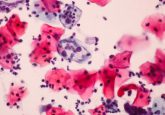Blood-vessel-on-a-chip aids discovery of anti-inflammatory drug candidate

Researchers from Beth Israel Deaconess Medical Center (MA, USA) and Harvard University (MA, USA) have demonstrated that small molecules mimicking activated protein C (APC) could provide anti-inflammatory and anti-thrombotic protection without interfering with blood clotting. This research makes these small molecules – termed parmodulins – attractive new drug candidates. The in vitro coagulation within human blood vessels was enabled by utilizing organ-on-a-chip technology.
“We essentially performed a mini pre-clinical trial of parmodulins’ effect on the endothelium, and not only determined the pathway through which parmodulins function, but also demonstrated that they help protect endothelial cells from inflammatory damage,” commented Abhishek Jain, Assistant Professor and director of the Bioinspired Translational Microsystems lab at Texas A&M University (TX, USA).
The team investigated the activity of parmodulins by developing a blood-vessel-on-a-chip with microfluidic channels, which were coated with collagen and lined by human endothelial cells. The chip was perfused with blood to simulate human blood vessels with different pro- and anti-inflammatory compounds being added.
Rob Flaumenhaft, corresponding author and Professor of Medicine at Harvard Medical School, commented: “The discovery of an anti-inflammatory molecule that prevents endothelial thrombosis but also preserves normal blood coagulation is a major step toward an alternative and better approach to treating inflammatory disease. Furthermore, nearly all other pharmaceuticals that target G-protein coupled receptors like PAR1 bind to the exterior of the receptor; parmodulin 2 represents a paradigm shift for compounds targeting GPCRs because it acts on internal domains. We are excited to see if we can advance it to clinical trials.”
Donald Ingber (Harvard University), that papers co-author, concluded: “This work provides another example of how organ-on-a-chip technology can enable faster and safer development and evaluation of drugs that could help patients around the world.”
Sources: De Ceunjunck K et al. PAR1 agonists stimulate APC-like endothelial cytoprotection and confer resistance to thromboinflammatory injury. PNAS. doi:10.1073/pnas.1718600115 (2018) (Epub ahead of print); https://medicalxpress.com/news/2018-01-blood-vessel-on-a-chip-insight-anti-inflammatory-drug-candidate.html






